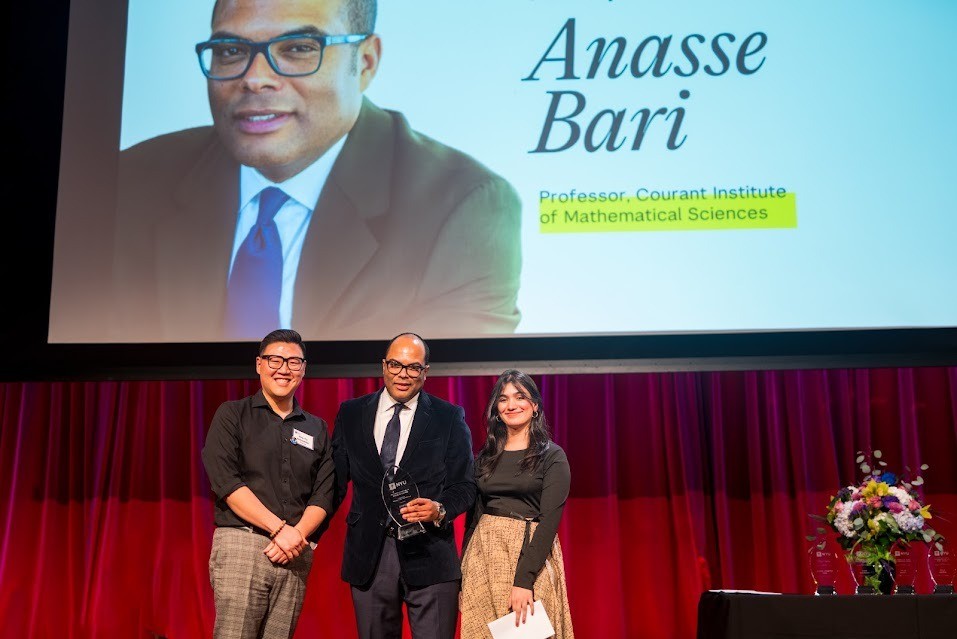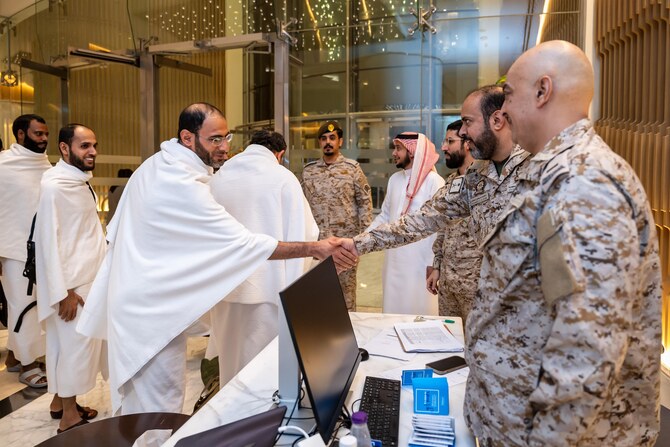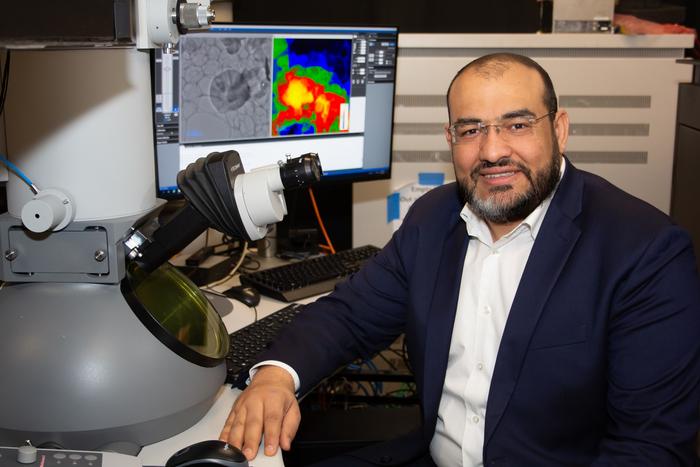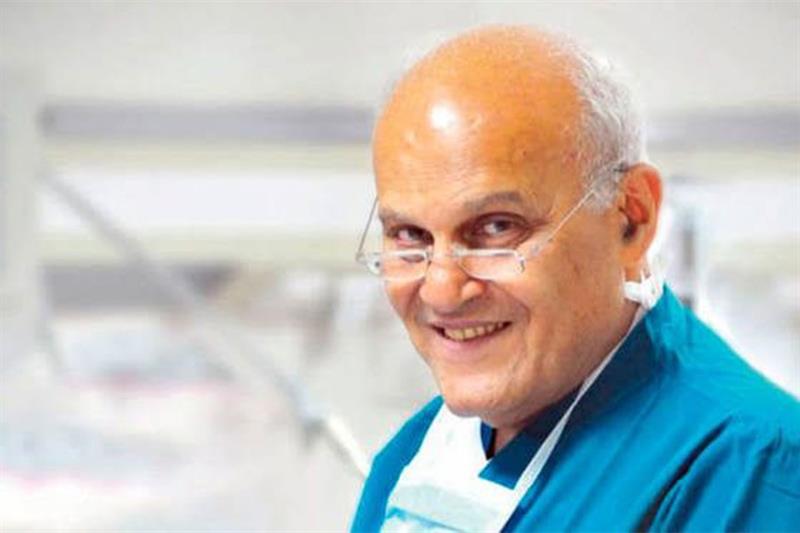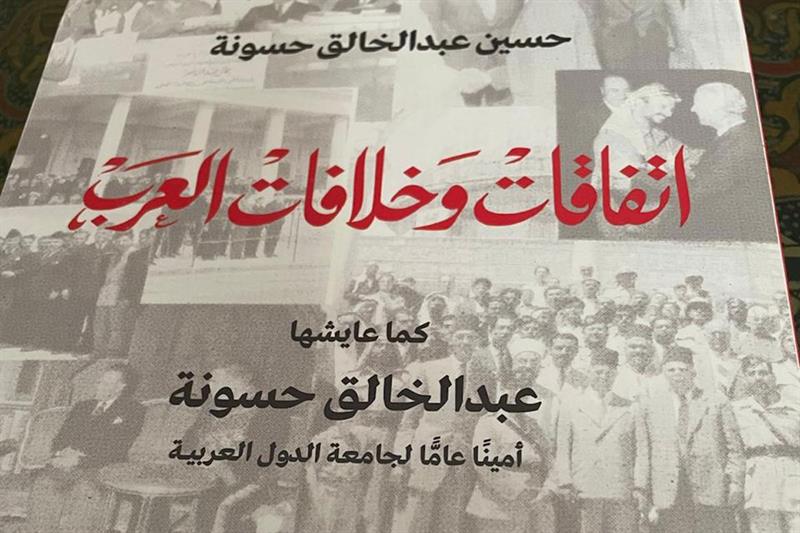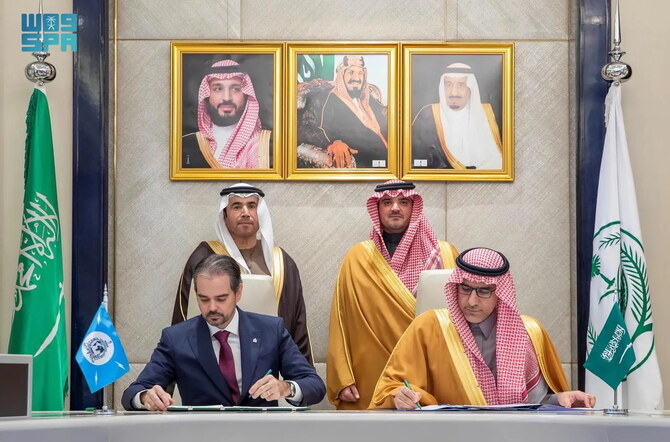For National Arab American Heritage Month, SWE recognizes some of the Arab women engineers making their mark in the industry.
National Arab American Heritage Month was first recognized at the federal level in the U.S. in April 2021, though celebrations recognizing the Arab community and their contributions in the United States were observed in previous years.
Here at the Society of Women Engineers, we are excited to celebrate some of the amazing Arab women engineers from around the world who are paving the way for others to pursue a future in STEM and thrive in their careers.
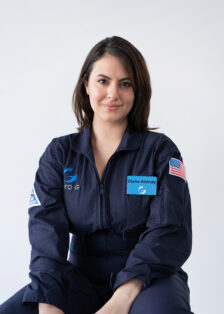
Diana Alsindy
Diana Alsindy is a propulsion engineering manager at Blue Origin where she leads a team of engineers building the next rocket to the moon. She is also the founder of The Arabian Stargazer, a bilingual educational platform that promotes science and space in the Middle East and North Africa (MENA) region. Diana is an Iraqi refugee who fled the Iraq war in 2004 with her family and now calls Los Angeles home. She frequently hosts lectures and seminars with schools that do not have access to engineering resources and aspires to continue paving the way to space and advocate for others to look up. Diana earned a bachelor’s degree in chemical engineering with a focus in mechanical and aerospace engineering from University of California San Diego. Hear her speak as a panel member on From the Classroom to the Cosmos: How Educators Can Help Girls Succeed in Space available in the Advance Learning Center.
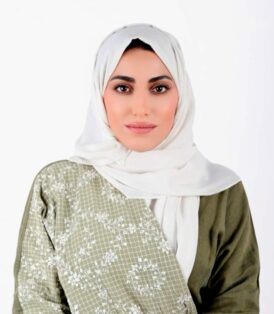
Alshaima Abduallah Alshayeb
Alshaima Abduallah Alshayeb is the founder and chairperson of the Saudi Women Engineers Society (SWES) and the first Saudi engineer specializing in structural engineering. She earned her bachelor’s and master’s degrees in civil engineering from the University of Technology Sydney and is the first engineer to hold a Certified Mostadam Accredited Professional license, a groundbreaking sustainable framework she led development on, which focuses on green building practices aligned with Saudi Arabia’s Vision 2030 goals. She is an advisor with the Saudi Association of Sustainability Professionals and founder of the Urban Heritage Association, presenting at World ESG Summit and Global Project Management Forum and promoting diversity and women in engineering. Under her leadership, SWES has forged partnerships with organizations such as Bechtel and Saudi Arabia Parsons Corporation to promote opportunities for Saudi women in engineering fields.
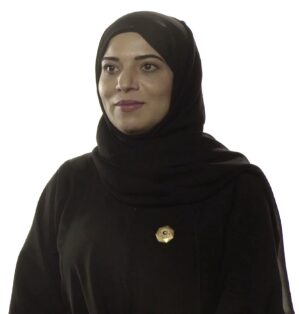
Dr. Habiba Alsafar
Dr. Habiba Alsafar is dean of the College of Medicine and Health Sciences and professor of genomics at Khalifa University, one of the United Arab Emirates top universities for STEM education. She earned a BS in biochemistry at San Diego State University, an MS in biomedical engineering from the University of Liverpool in the United Kingdom, and Ph.D. in medical and forensics science from the University of Western Australia. She is credited with establishing the Emirates Family Registry — the first study of its kind in the Middle East — which was instrumental in discovering diabetes risk factors unique to the area’s Bedouin population. She is the recipient of the UAE’s First Honor Model award and the International L’Oréal-UNESCO Fellowship for Women in Science, as well as the International L’Oréal-UNESCO Rising Talents award in recognition of her trailblazing work in genetics.
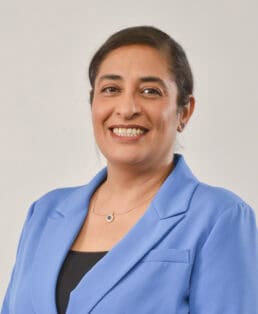
Dr. Chiraz Ennaceur
Dr. Chiraz Ennaceur is the CEO and co-founder of Cambridge-headquartered CorrosionRADAR Ltd, a technology startup in the predictive corrosion monitoring and assets management space. The organization has received recognition for its groundbreaking Predictive Corrosion Under Insulation Monitoring System, and Dr. Ennaceur received the 2024 Women in Excellence Achievement Award from the International Maintenance, Reliability, and Asset Management conference (MAINTCON) in recognition of her outstanding contributions and leadership in her field. Born in Tunisia, Dr. Ennaceur completed her schooling there, earning a civil engineering degree at Ecole National d’Ingénieurs de Gabès (National Engineering School of Gabes), where she was only one of two girls in a class of 20 students, and then a Ph.D. in mechanical engineering at the University of Technology of Compiègne in France.
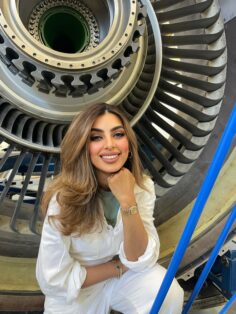
Marwa Al Mamari
The first aerospace engineer in the history of the United Arab Emirates, Marwa Al Mamari is pursuing a Ph.D. studying artificial intelligence in aviation at Coventry University, where she also earned a Master of Science in aviation safety and a Bachelor of Applied Science in aerospace engineering. She has previously worked with the UAE General Civil Aviation Authority, specializing in accident prevention and safety recommendations. This mother of two is also an adjunct lecturer in engineering at New York University Abu Dhabi. In 2024, she was honored as an Emirati Woman Achiever, an award recognizing visionary Emirati women leading entrepreneurship and innovation in the UAE. She has spoken at TEDx and other events globally on changing the narratives, the power of STEM, and women’s empowerment in shaping the future.
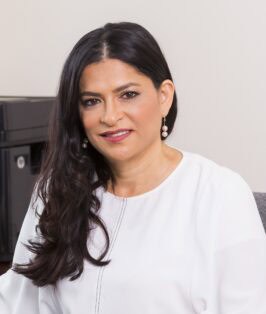
Dr. Raida Al-Alawi
As the president of the Bahrain Society of Engineers, Dr. Raida Al-Alawi is the first woman to lead the organization in its 50+ year history and the first Bahraini woman to earn a Ph.D. in engineering. Her professional experience includes serving as dean of Student Affairs at Manama’s Ahlia University, and as associate professor in the department of electrical and electronics engineering at the University of Bahrain, where she also chaired the department of computer engineering. Dr. Al-Alawi is a Fellow of both the Institution of Engineering and Technology and the Academy of Engineering and Technology of the Developing World, and senior member of the Institute of Electrical and Electronics Engineers and the International Association of Engineers. She holds a Ph.D. in Computational Intelligence from Brunel University London, an MSc in Computer Engineering from King’s College London, and a BSc in Electrical Engineering from Kuwait University.
source/content: alltogether.swe.org (headline edited)
_____________

_________
ARAB

